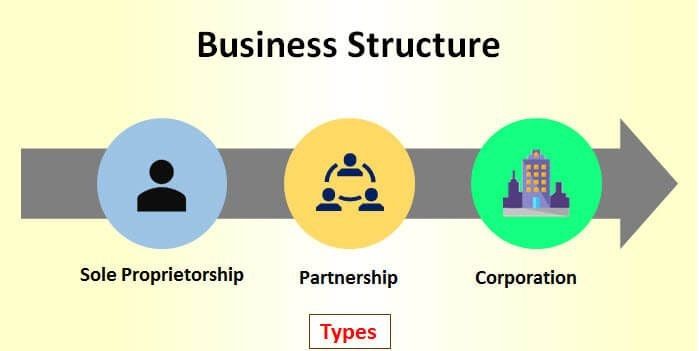How to start a small business A Step-by-Step Guide to Starting a Small Business

Turning your entrepreneurial spark into a thriving business venture requires dedication, planning, and strategic execution. Here is a guide on how to start a small business to help you kickstarted.
Step 1: Find Your Niche and Craft a Compelling Vision
- Unearth Your Passion: What are you naturally good at and genuinely enthusiastic about? Exploring your interests paves the way for a fulfilling business journey.
- Market Research: Conduct thorough research to identify market gaps, understand your target audience, and analyze competitor strategies. Utilize free resources like Google Trends and the U.S. Small Business Administration (SBA) website: https://www.sba.gov/.
- Value Proposition: Clearly define what makes your business unique and how it solves a specific problem for your target audience.
Ideas for Online small business :
- Mobile App Development: Design and develop custom mobile apps for local businesses or specific niche markets.
- Home Improvement Services: Offer carpentry, painting, appliance installation, or other home improvement services in your local area.
- Personal Fitness Training: Provide personalized fitness training sessions in clients' homes or outdoor locations.
- Childcare Services: Offer in-home childcare, babysitting, or nanny services for families in your community.
- Music Lessons: Teach guitar, piano, or other instruments to individuals or groups in your local area.
- Pet Grooming: Offer dog grooming services in your home or a mobile grooming van.
- Catering and Food Truck: Prepare and sell food at local events, farmers markets, or open a food truck in a high-traffic area.
- Event Photography or Videography: Capture special moments at weddings, parties, or corporate events.
- Marketing Consulting: Provide marketing strategy and implementation services to small businesses in your area.
- Personal Shopping or Styling: Offer personalized shopping assistance or style consultations for individuals or businesses.
Ideas for Local small business :
- Home Improvement Services: Offer carpentry, painting, appliance installation, or other home improvement services in your local area.
- Personal Fitness Training: Provide personalized fitness training sessions in clients' homes or outdoor locations.
- Childcare Services: Offer in-home childcare, babysitting, or nanny services for families in your community.
- Music Lessons: Teach guitar, piano, or other instruments to individuals or groups in your local area.
- Pet Grooming: Offer dog grooming services in your home or a mobile grooming van.
- Catering and Food Truck: Prepare and sell food at local events, farmers markets, or open a food truck in a high-traffic area.
- Event Photography or Videography: Capture special moments at weddings, parties, or corporate events.
- Marketing Consulting: Provide marketing strategy and implementation services to small businesses in your area.
- Personal Shopping or Styling: Offer personalized shopping assistance or style consultations for individuals or businesses.
Step 2: Craft a Solid Business Plan
- Roadmap to Success: Your business plan serves as a blueprint for your operations, outlining your goals, strategies, financial projections, and marketing plan.
- Free Templates: Many organizations offer free business plan templates, including the SBA: https://www.sba.gov/business-guide/plan-your-business/write-your-business-plan.
- Seek Guidance: Consider consulting with experienced mentors or small business development centers (SBDCs) for expert advice and feedback.
Step 3: Secure Funding
- Bootstrapping: Start with personal savings, crowdfunding, or leveraging existing assets.
- Loans and Grants: Explore government-backed loan programs and grants suitable for your business type. Research options on the SBA website: https://www.sba.gov/.
- Investors: For established businesses, pitching to angel investors or venture capitalists could be an option.
Step 4: Choose the Right Business Structure

- Sole Proprietorship: Simplest structure, but you hold personal liability.
- Limited Liability Company (LLC): Offers liability protection and flexibility.
- Corporation: More complex structure with additional legal and tax requirements. Seek professional guidance to determine the best fit for your business.
Step 5: Register Your Business and Obtain Licenses/Permits
- Business Name Registration: Choose a unique and legally compliant name.
- Employer Identification Number (EIN): Obtain an EIN from the IRS for tax purposes.
- Licenses and Permits: Research and acquire necessary licenses and permits based on your location and industry. Consult your local government websites for details.
Step 6: Build a Captivating Brand Identity
- Logo and Design: Invest in a professional logo and consistent branding across all communication channels.
- Website: Establish a user-friendly website that reflects your brand and resonates with your target audience (more on this later!).
- Social Media Presence: Create engaging profiles on relevant social media platforms to connect with your audience and build brand awareness.
Step 7: Implement Effective Marketing Strategies
- Digital Marketing: Leverage Search Engine Optimization (SEO), content marketing, social media marketing, and pay-per-click (PPC) advertising to reach your target audience online.
- Traditional Marketing: Explore offline marketing tactics like print advertising, local events, and community partnerships depending on your budget and target audience.
- Track and Analyze: Regularly monitor your marketing campaigns' performance and adapt your strategies based on data insights.
The Power of a Website for Your Small Business:
In today's digital landscape, a website is no longer an option; it's a necessity for any small business aspiring to succeed. Here's why:
- 24/7 Accessibility: Your website acts as your virtual storefront, accessible to potential customers anytime, anywhere. For this either you can hire someone or stay online for your customer or Go with our clever chat bots which can able to answer questions from your customer 24/7.
- Credibility and Trust: A professional website instills trust in your brand and establishes you as a legitimate business entity.
- Marketing Hub: Integrate your website with marketing tools like SEO, email marketing, and social media for a cohesive online presence.
- Lead Generation: Capture leads through contact forms, email subscriptions, and e-commerce functionalities.
- Customer Engagement: Provide valuable content, answer FAQs, and offer online support to build meaningful relationships with your customers.
Additional Resources on how to start a small business :
- U.S. Small Business Administration (SBA): https://www.sba.gov/
- SCORE: https://www.score.org/
- National Association for the Self-Employed (NASE): https://www.nase.org/
- HubSpot Academy: https://academy.hubspot.com/
By following these steps, conducting thorough research, and utilizing the vast array of resources available, you can transform your entrepreneurial

